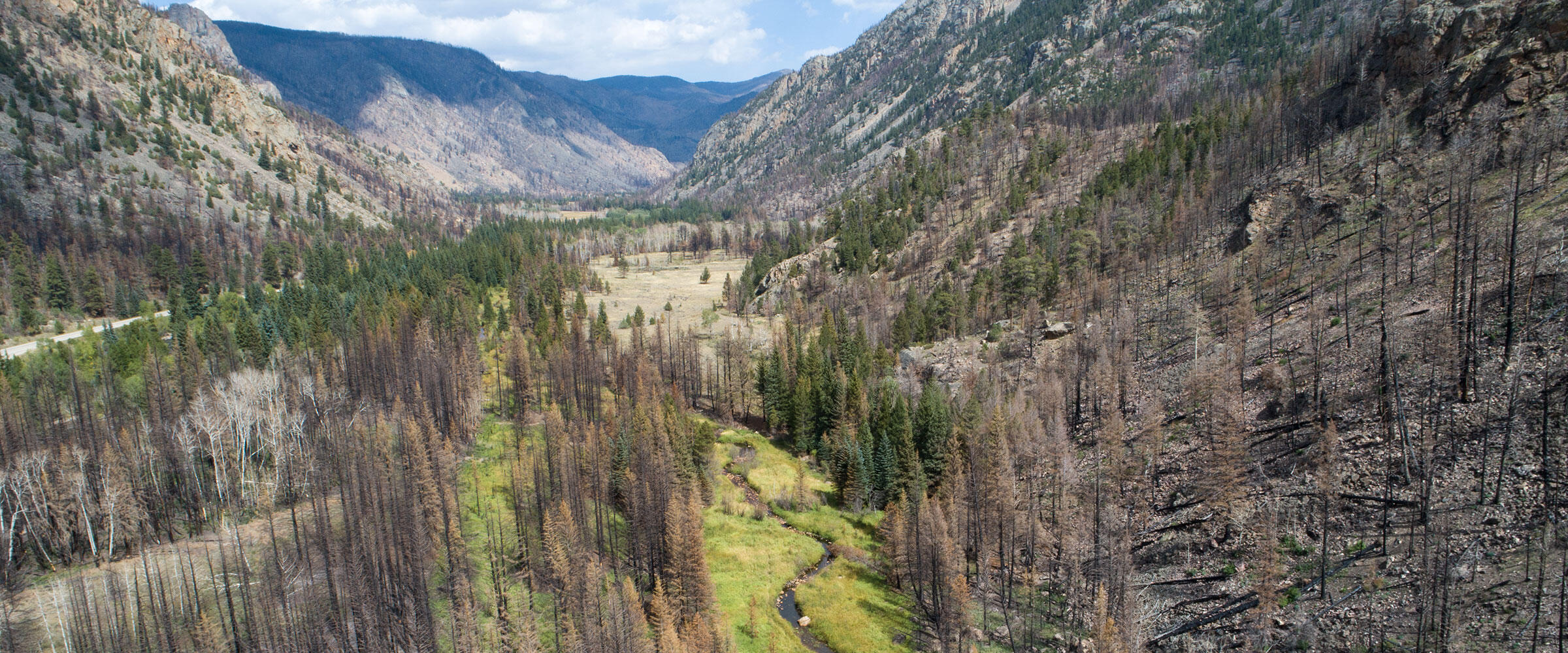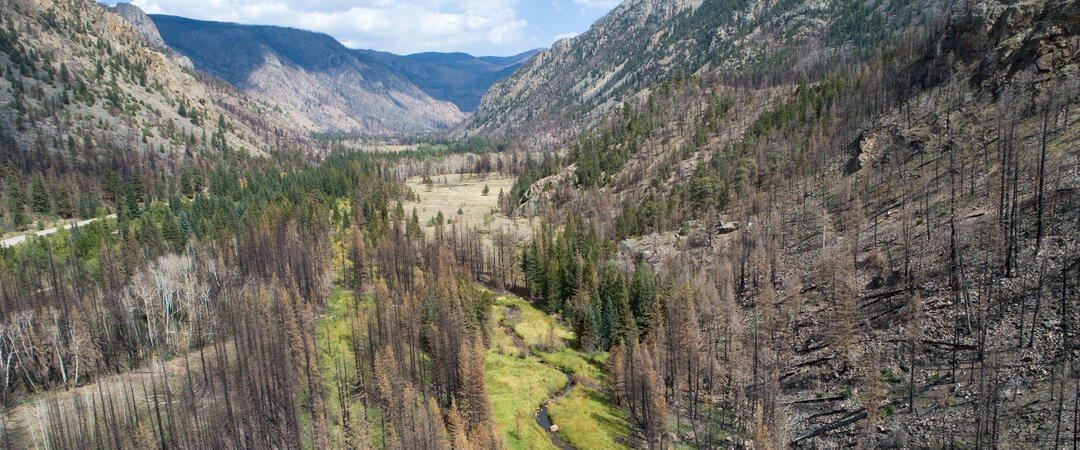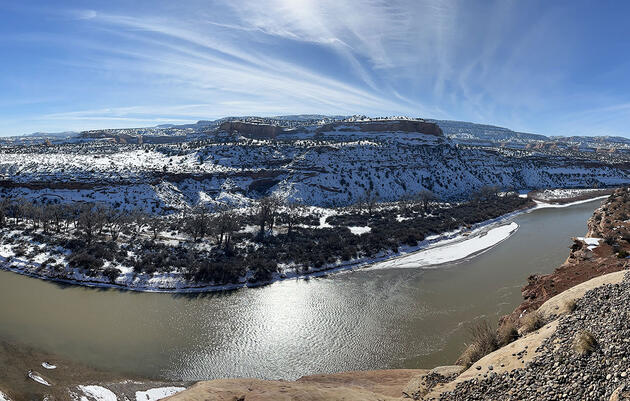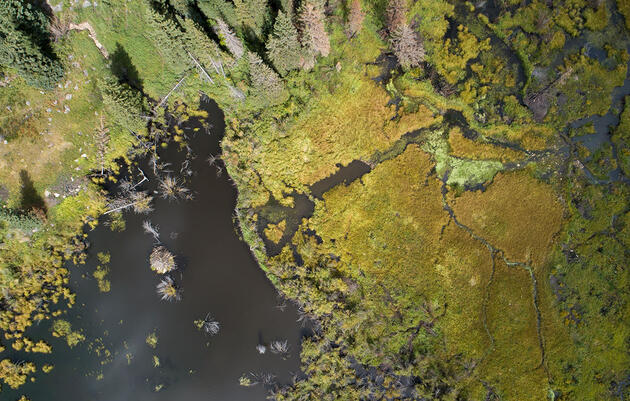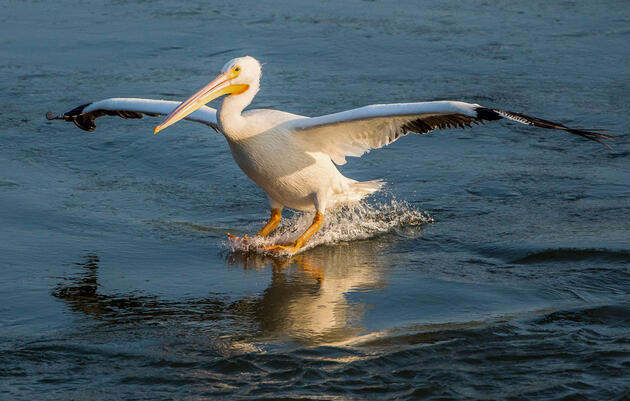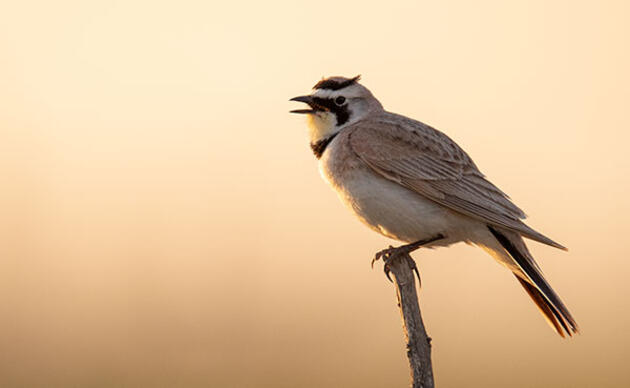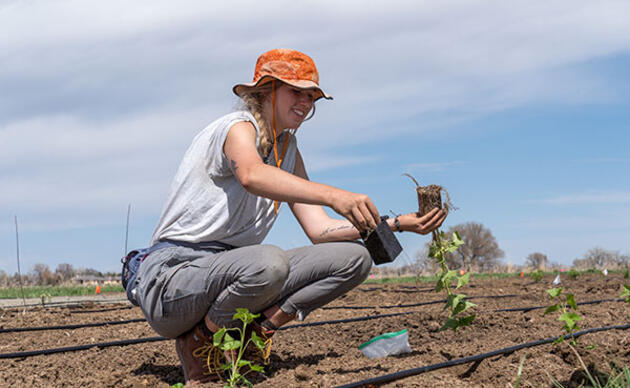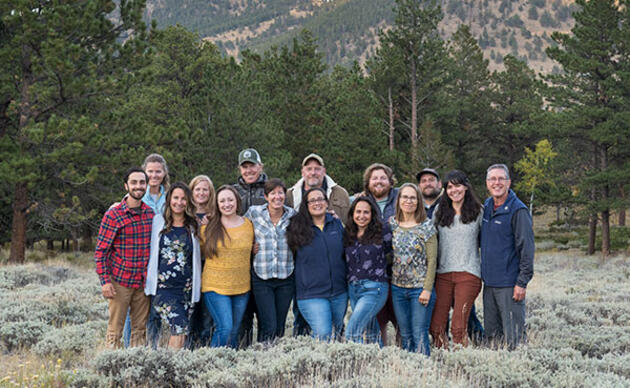On World Water Day, we held our first legislator webinar in a series of three focused on Colorado’s watersheds. More than 130 legislators, staff/aids, and informed members of the public attended the live session. We were delighted to host expert panelists including Speaker of the House of Representatives Alec Garnett, Director of Colorado’s Department of Natural Resources Dan Gibbs, Deputy Director of Water Resources for City of Greeley Adam Jokerst, and our very own Western Rivers Regional Program Manager Abby Burk. Each panelist spoke to the importance of Colorado’s watersheds—from funding support, to statewide challenges like wildfires and their impacts on water and communities, to mitigating solutions and paving the way forward. Here’s a recap of the discussion and what you need to know to support Colorado’s watersheds. A recording of the webinar is included at the end.
As a state, we are fortunate to have increasing support and similar values in the protection of our water resources. Speaker of the House, Alec Garnett, reports “Colorado legislature is really going above and beyond to make sure that we are helping people across the state in every region meet the needs, meet the moment that we are seeing right now.” Speaker Garnett highlighted his observation of the increasing prioritization of our watersheds in his eight years at the state legislature. In 2021, the legislature invested $70 million to support wildfire and flood mitigation— and it doesn’t end here. This level of prioritization is persisting into 2022 as well. With the influx of federal funding through the American Rescue Plan Act and additional resources, the legislature is hoping to surpass its 2021 investment.
In the last two years, Colorado’s fire history has made devastating and groundbreaking records. Our two largest fires by acreage, Cameron Peak (208,913 acres) and East Troublesome (193,812 acres), burned in tandem in late 2020, and our most destructive fire yet, the Marshall fire followed in late 2021. According to Director of Colorado’s Department of Natural Resources and certified wildland firefighter Dan Gibbs, “We are in the age of megafires—fires that are over 100,000 acres. The 2020 fire season was a great reminder for Colorado that we are one lightning strike away, one unattended campfire, and frankly one more drought season, as a result [of] climate change, away from Colorado’s next megafire. So, we really need to be prepared as a state.”
In Colorado, wildfires are not just a part of our history, but our present and future, too. The detrimental impacts of wildfires are far-reaching and long-lasting. The smoke impacts regional air quality and the fires burn vegetation critical for ecosystems, birds, and wildlife. This, in turn, severely affects water quality. Burn areas are unable to retain moisture effectively which leads to numerous issues, most notably flash flooding and debris flows. These are just a few high-level examples of the impact wildfires have on our environment, communities, birds, and wildlife.
Colorado’s water resources face significant challenges and its supply is threatened by climate change. Forested watersheds are the source of 80 percent of Colorado’s drinking water. In the age of megafires, our watersheds and water supplies are at risk. Did you know that water treatment plants are unable to treat runoff from burn scars? Following the Cameron Peak fire, the City of Greeley had to turn off its main water supply for more than 40 days due to ash and debris contamination. Deputy Director of Water Resources Adam Jokerst provided a detailed overview of the impacts of the Cameron Peak fire on Greeley’s water supply in addition to the many mitigation and recovery efforts. “We have a long way to go but we’re optimistic that we can repair this watershed and avoid disasters imminent from this post-fire landscape.”
Director Dan Gibbs spoke to the importance of substantially increasing Colorado’s wildfire risk mitigation programs. That is, investing in our natural infrastructure (i.e., forests) and human infrastructure (i.e., private landowners, all scales of government agencies, etc.), identifying mutual priorities to build stewardship and collaboration, and ensuring widespread fire smart land-use planning and local business codes. Colorado has been working tremendously hard to build more fire resilient communities and watersheds, however, there’s still more work to be done.
Watershed protection, wildfire mitigation, and recovery efforts can come with substantial and hefty price tags. The more we can do on the front end to prevent wildfires and impacts on our watersheds, the more all of Colorado will thrive. Fortunately, there are numerous low-tech and affordable mitigation strategies that provide win-win solutions. Both Adam Jokerst and Abby Burk spoke to these in an effort to elevate affordable and complementary nature-based solutions.
With the influx of federal and state funding, widespread support is needed more than ever to protect our water resources. We urgently need to scale up our resilience to climate change—in pre-wildfire preparedness, post-wildfire recovery, and in both drought and flood. “Collectively as a state from residents to decision-makers, we need to lean in, learn more, and participate in the decisions around our water resources. The decisions we make about water, watersheds, and river health impact all of Colorado,” said Abby Burk. “All of us depend on natural systems for clean and reliable water. When we invest in the health of Colorado’s watersheds and rivers, we invest in our resilience to climate change.”

